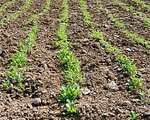 Go to main content
Go to main content
Archive Website of the UK government
Please note that this website has a UK government accesskeys system.
Main menu
Page menu
Environment and greener living

How a drought can affect you

In a drought we must do our bit to use less water. Find out how the current situation could affect you and how to use less water.
What is a drought?
A drought is a long period of unusually low rainfall resulting in possible water shortages.
A drought is a long period of unusually low rainfall resulting in possible water shortages. It can be short and intense (e.g. a hot dry summer) or develop over a longer time (e.g. a dry summer followed by a dry winter and another dry summer).
Droughts can happen anywhere in England and Wales, not just the drier south east of England, and could affect a large or small area.
You can find out about the current water status in the monthly water situation reports from the Environment Agency.
What you can do – how to save water
Before you use water, ask yourself what it’s for and whether you need to use it. Here are some things you can do:
- if you really need to wash your car use a bucket (instead of a hosepipe) or just keep headlights, mirrors and windows clean for safety reasons
- don’t waste running water while waiting for it to get hot, you can collect it and use it to water plants
- avoid running the tap until the water gets cold every time you want a drink, keep a jug of water in the fridge so you always have cool drinking water
- let your grass grow, this provides shade for the soil and helps retain water
- don’t worry if your grass goes brown, it doesn’t mean it’s died, it will recover when it rains
- reuse bath water for watering house plants or in the garden
- use water saving crystals which expand and hold the water in your soil when you water it and when it rains
Why should you save water in a drought?
Reasons to save water during a drought include:
- droughts are natural events, a period of low rainfall can lead to a shortage of water
- we must save water because we can’t predict how long a drought will last
- water shortages don’t just affect people, they can also seriously harm our environment
- our water comes from rivers and the ground, so the less we use the more is left for the environment
What you will have to stop doing – the types of restrictions you can face
Your water company supplies your water. By law each water company must produce a drought plan. Their plans state what restrictions it may place on water use during a drought and when. Go to your water company’s website to find out how you might be affected or comment on the plan. These are the restrictions you may face:
Hosepipe and sprinkler bans
Water companies decide when to impose this ban and they don't need permission from the Environment Agency or the Government. Anybody who ignores it can be fined up to £1,000. People can still use a watering can for plants and a bucket to wash their cars.
Non-essential use drought order
Water companies can apply to the Government or Welsh Assembly Government for these. This allows them to ban more uses of water to conserve supplies, for example:
- filling swimming pools and ornamental ponds
- running fountains or cascades
- operating pressure washers
- cleaning windows with a hosepipe
- washing boats or caravans
Emergency drought order
This is a last resort and would mean a water company could impose:
- standpipes - supplies to homes would be shut off and people would have to collect water from standpipes in the street
- water tankers and bowsers – where it’s not possible to use standpipes people would have to collect their water from tankers or bowser in the street
- rota cuts - supplies to homes and businesses would be cut off at certain times of the day, such as for eight hours at a time
Whose job is it to manage drought?
In England and Wales, the main bodies responsible for managing water resources are the water companies, the Environment Agency, and the Government.
The Environment Agency is responsible for making sure that water resources are used properly in England and Wales so that there is enough water available for all needs including the environment.
Water companies are responsible for making sure the system they use to supply water in your area works well and makes sound economical sense. They must do this without damaging the natural environment (for example, for fish or wildlife) or affecting the needs of other water users (for example, boating or fishing).
Defra and the Welsh Assembly Government make sure that the law for water resource management is fit for purpose.
 Facebook
Facebook Twitter
Twitter StumbleUpon
StumbleUpon Delicious
Delicious Reddit
Reddit
